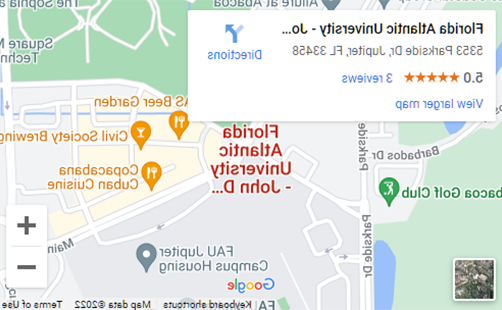Henriette van Praag, Ph.D.
Our Research
The van Praag lab aims to understand the beneficial effects of exercise on brain function and behavior. In particular, we focus on the running-induced increase in new neurons in the adult rodent dentate gyrus of the hippocampus, a brain area that is essential for learning and memory. In mice, voluntary wheel running more than doubles the production of new neurons in the dentate gyrus, in association with enhanced synaptic plasticity and memory function.
We aim understand the underlying neuroanatomical, physiological and cellular mechanisms. To do so we employ multiple approaches. Using behavioral assays that are tailored to the role of the dentate gyrus in memory function we have found that running enhances pattern separation, the ability to distinguish between two very similar stimuli or events, in association with increased neurogenesis. We consider, however, that the proposed contribution of new neurons to behavior is not just a function of their quantity but also of the network they integrate into. We study the direct inputs to new neurons using a dual-virus method. In particular, we label proliferating progenitor cells in the dentate gyrus with retrovirus, followed by rabies virus as a retrograde tracer. Running substantially reorganizes the local hippocampal and distal (sub) cortical network of new neurons in a manner that benefits sparse encoding or pattern separation in the dentate gyrus. To begin to understand the underlying cellular mechanisms that elicit these changes in the brain we are investigating how muscle energy metabolism pathways can influence memory and adult hippocampal neurogenesis. Ongoing research is dedicated to further understanding the cross-talk between myokines and brain function, and to running-induced changes in neuronal circuitry and memory function.

Henriette van Praag
Henriette van Praag received her Ph.D. from Tel-Aviv University (Israel). She obtained postdoctoral training at Robert Wood Johnson Medical School, NJ, followed by a position as a staff scientist at the Salk Institute for Biological Studies in La Jolla, CA. Dr. van Praag started her own research group at the National Institute on Aging in Baltimore in 2007. She moved her laboratory to Florida Atlantic University in 2018. She is an Associate Professor of Biomedical Sciences at the Charles E. Schmidt College of Medicine and FAU Brain Institute, and serves as co-Editor-in-Chief for the journal Brain Plasticity.
http://www.iospress.com/catalog/journals/brain-plasticity
- Vivar, C., Peterson, B., Pinto, A.P., Janke, E., van Praag, H. Running throughout middle-age keeps old adult-born neurons wired. eNeuro ENEURO.0084-23.2023. doi: 10.1523/ENEURO.0084-23.2023.
- Gaitan J.M., Moon H.Y., Stremlau M., Dubal D.B., Cook D.B., Okonkwo O.C., van Praag H. Effects of Aerobic Exercise Training on Systemic Biomarkers and Cognition in Late Middle-Aged Adults at Risk for Alzheimer’s Disease. Front. Endocrinol. 12:660181. doi: 10.3389/fendo.2021.660181, 2021.
- Zhao, X. and van Praag, H. Steps towards standardized quantification of adult neurogenesis. Nature Communications, 11:4275 | http://doi.org/10.1038/s41467-020-18046-y, 2020.
- Voss, M.W., Soto, C., Yoo, S., Sodoma, M., Vivar, C., van Praag, H. Exercise and hippocampal memory systems. Trends in Cognitive Sciences doi.org/10.1016/j.tics.2019.01.006, 2019.
- Shen M, Wang F, Li M, Sah N, Stockton ME, Tidei JJ, Gao Y, Korabelnikov T, Kannan S, Vevea JD, Chapman ER, Bhattacharyya A, van Praag H, Zhao X. Reduced mitochondrial fusion and Huntingtin levels contribute to impaired dendritic maturation and behavioral deficits in Fmr1-mutant mice. Nature Neuroscience doi: 10.1038/s41593-019-0338-y, 2019.
- Moon, H.Y., Javadi, S., Stremlau, M., Yoon, K.J., Becker, B., Kang, S.U., Zhao, X., van Praag, H. Conditioned media from AICAR-treated skeletal muscle cells increases neuronal differentiation of adult neural progenitor cells. Neuropharmacology pii: S0028-3908(18)30830-X, 2018.
- Choi, S.H., Bylykbashi, E., Chatila, Z.K., Lee, S.W., Pulli, B., Clemenson, G.D., Kim, E., Rompala, A., Oram, M.K., Asselin, C., Aronson, J., Zhang, C., Miller, S.J., Lesinski, A., Chen, J.W., Kim, D.Y., van Praag, H., Spiegelman, B.M., Gage, F.H., Tanzi, R.E. Combined adult neurogenesis and BDNF mimic exercise effects on cognition in an Alzheimer's mouse model. Science 361(6406). pii: eaan8821, 2018.
- Sah, N., Peterson, B.D., Lubejko, S.T., Vivar, C., van Praag, H. Running reorganizes the circuitry of one-week-old adult-born hippocampal neurons. Scientific Reports, 7:10903, 2017.
- Moon H.Y., Becke, A., Berron, D., Becker, B., Sah, N., Benoni, G., Janke, E., Lubejko, S.T., Greig, N.H., Mattison, J.A., Duzel, E., van Praag H. Running-induced systemic cathepsin B secretion is associated with memory function. Cell Metabolism 24: 332–340, 2016.
- Jongbloets, B.C., Lemstra, S., Schellino, R., Broekhoven, M.H., Hellemons, A.J., Mao, T., Giacobini, P., van Praag, H., De Marchis, S., Ramakers, G.M., Pasterkamp, R.J. Stage-specific functions of Semaphorin7A during adult hippocampal neurogenesis rely on distinct receptors. Nature Communications, ncomms 14666, doi: 10.1038, 2017.
- Mohammad, H., Marchisella, F., Ortega-Martinez , S., Hollos P., Eerola, K., Komulainen, E., Kulesskaya, N., Freemantle, E., Fagerholm, V., Savantous, E., Rauvala , H., Peterson, B.D., van Praag, H., Coffey, E. JNK1 controls adult hippocampal neurogenesis and imposes cell autonomous control of anxiety behaviour from the neurogenic niche. Molecular Psychiatry, doi:10.1038/mp.2016.203, 2016.
- Vivar, C., Peterson, B.D., van Praag, H. Running rewires the neuronal network of adult-born granule cells. NeuroImage, 131:29-41, 2016.
Henriette van Praag|Stiles-Nicholson Brain Institute|5353 Parkside Drive, MC-17, Jupiter, FL33458| hvanpraag@health.e21system.com | vanPraagLab@e21system.com


